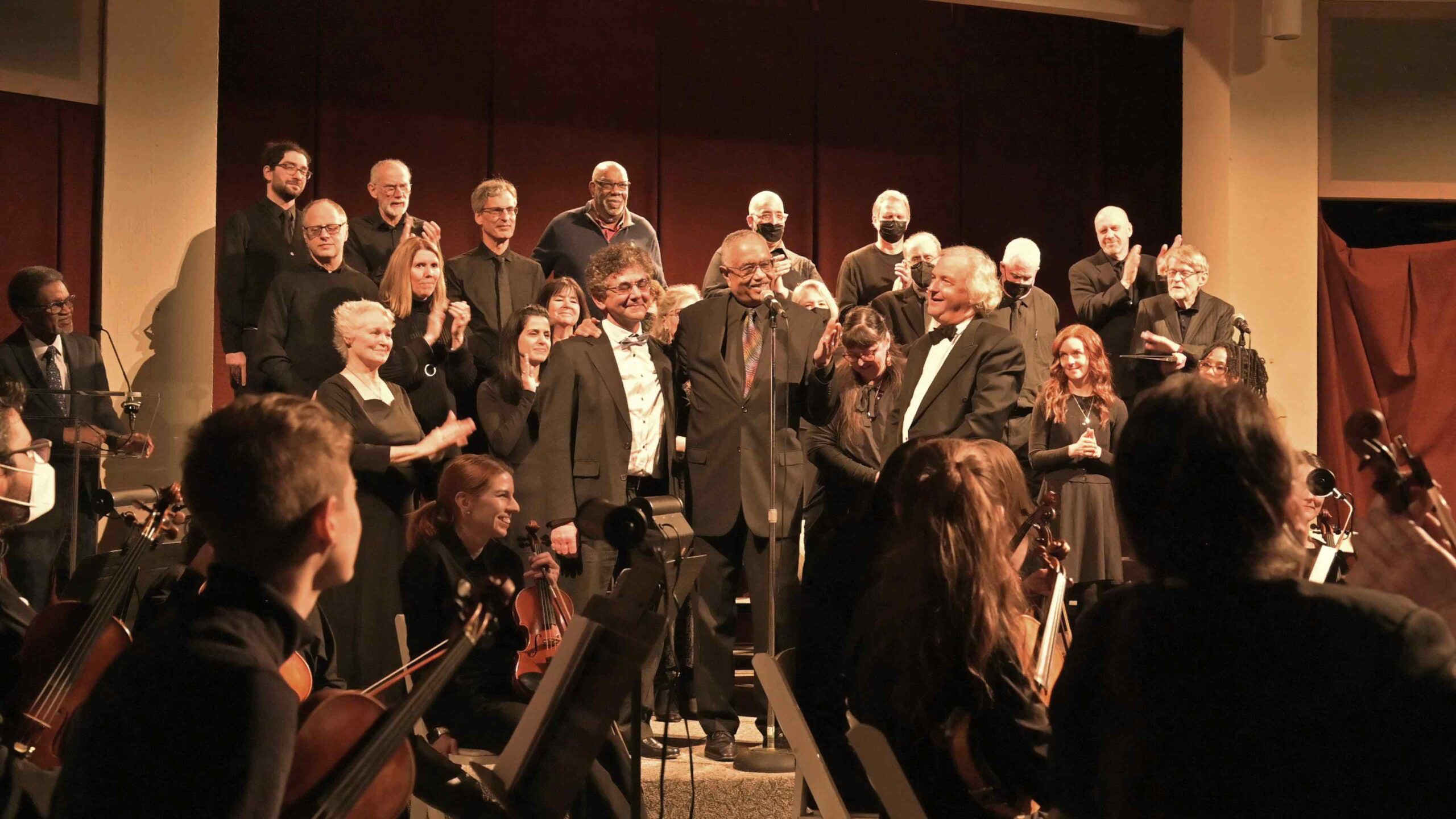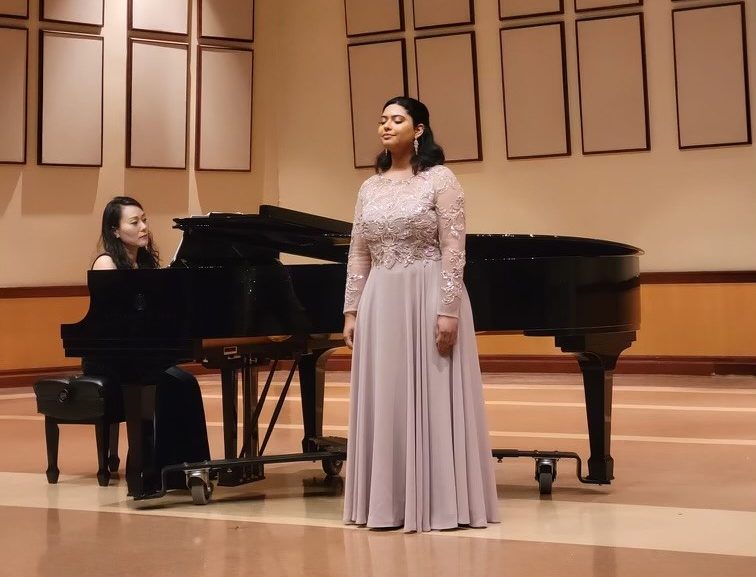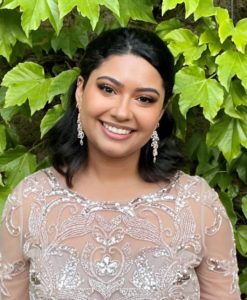




Singing her heart out is what Mona Asadi does, what she has done and what she plans to do.
On Sunday, July 10, she will be singing with 130 others at the 14th annual Choral Festival at the Baha’i House of Worship in Wilmette, Illinois.
Asadi, originally from Las Vegas, graduated from Chapman University in Orange, California, in May 2022 with Bachelor of Music degrees in music education and vocal performance, and a minor in religious studies.
She says that her senior recital was four years in the making through the study of classical music. “But I knew that I wanted it to be a tribute to the things that really mattered to me–a kind of a summation–of my four years at Chapman and the lessons I’ve learned and what I’m grateful for,” she says. “And one of those things is God.”
“I was raised as a Baha’i and I have always been a person of faith,” Asadi says. “But I’d say in the last two years or so, I actively chose the Faith for myself. I think a lot of people who grow up in the Baha’i Faith can really appreciate the community it brings and the values and stuff like that. But it’s also really easy to take it for granted and to forget why the message of Baha’u’llah is so important.
“I thought it was very important to be able to add a song that would be a tribute to my spiritual journey and how that blossomed for me during my college years.
“I’m half Black and I’m half Persian,” Asadi says. “My mom is from Trinidad and my dad is from Iran and I’m very connected to my Black identity. The idea that I had for this recital was that I could sing at least one song that was inspired by the Baha’i writings and composed by a Black Baha’i composer.”
“So I reached out to Van Gilmer, music director at the Baha’i House of Worship in Wilmette, and told him what I was looking for.” Gilmer shared one of his compositions, My God, My Adored One.
“As soon as I heard it,” Asadi says, “I was like, ‘this is it. This is the song.’ It has a gospel feel, which I love.” The piece was originally written in parts for choir. Gilmer created an arrangement for voice and piano for Asadi to sing at the recital along with the 13 other songs she prepared.
“I sang it for my encore,” Asadi says. “After an hour’s worth of classical music, it was really nice and refreshing.”
“I got to have a pre-encore chat with the audience where I was able to thank them for attending and also talk about the song,” she says.
“It was a beautiful cap on something that was already very meaningful to me. I had many people come up to me afterwards and tell me that was their favorite song.”
Asadi says that music allows her to express her ongoing exploration of her Black identity. “I try very hard to include poets and composers of diverse backgrounds in the music that I sing and also the music that I teach.”
Another song Asadi included in her recital was Sympathy, by Florence Price, who is known as the first African American woman to achieve widespread recognition as a symphonic composer. Price was part of the Chicago Black Renaissance and worked with many well-known figures, such as Marian Anderson and Langston Hughes.
The text to Sympathy was written by the Black poet Paul Lawrence Dunbar and is the inspiration behind Maya Angelou’s book I Know Why the Caged Bird Sings.
“This song is sung today in recognition of the struggles and injustices experienced by the Black community in America,” Asadi writes in her recital’s program notes. “It is also about the unrelenting spirit of hope and faith that sustains and propels the Black community, even in times of pain and violence.”
I know why the caged bird beats his wing
Till its blood is red on the cruel bars;
For he must fly back to his perch and cling
When he fain would be on the bough a-swing;
And a pain still throbs in the old, old scars
And they pulse again with a keener sting—
I know why he beats his wing!
Gilmer, too, favors music that speaks to human experience and healing. He includes spirituals, gospel and classical music in the festival choir’s repertoire.
Asadi, who sings alto, says preparing for the festival was straightforward. “The music’s very accessible,” she says of this year’s selections.
Asadi first heard about the annual choir festival when her grandfather, Laurence Michael Coward, sang in one of the early years. “I thought it was the coolest thing. I always considered it to be something on my bucket list,” she says, and the time was right to attend since she’s currently taking a gap year.
“I’ve always wanted to teach choir, too,” says Asadi. “It’s very grounding for me. Choir has always been a huge part of my life.”
(Mona Asadi is accompanied by Hye-Young Kim)
My God, My Adored One – vocals by Mona Asadi from Bahai.us on Vimeo.


![]()
![]()
Whether you are exploring the Bahá'í Faith or looking to become an active member, there are various ways you can connect with our community.
Please ensure that all the Required Fields* are completed before submitting.